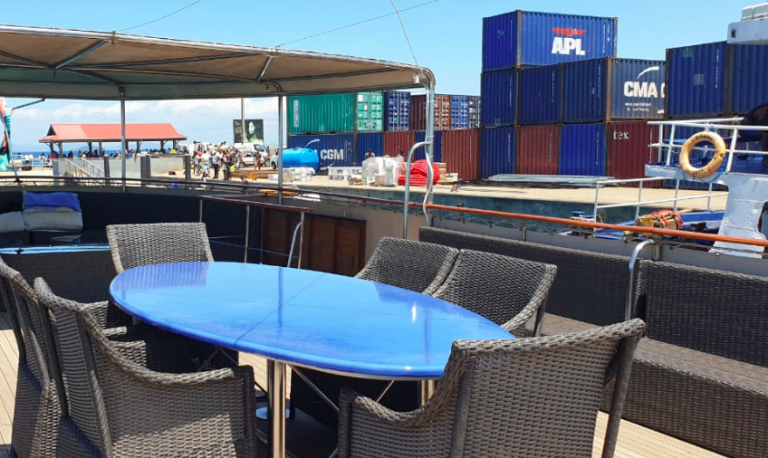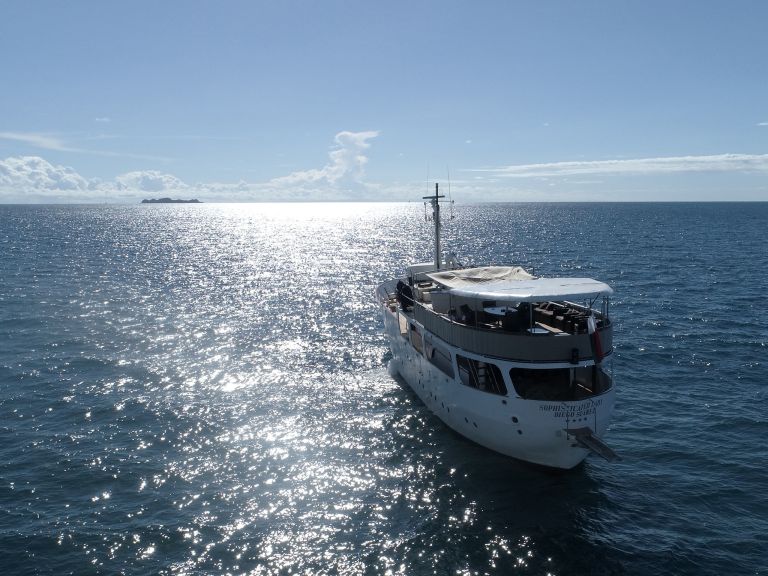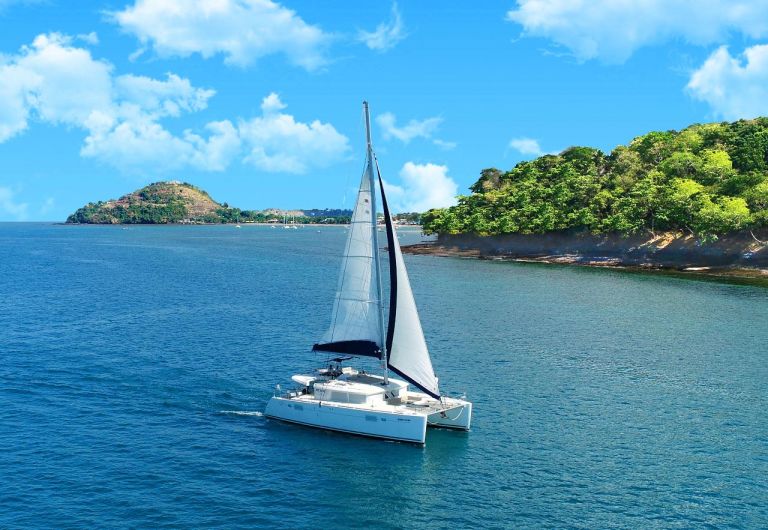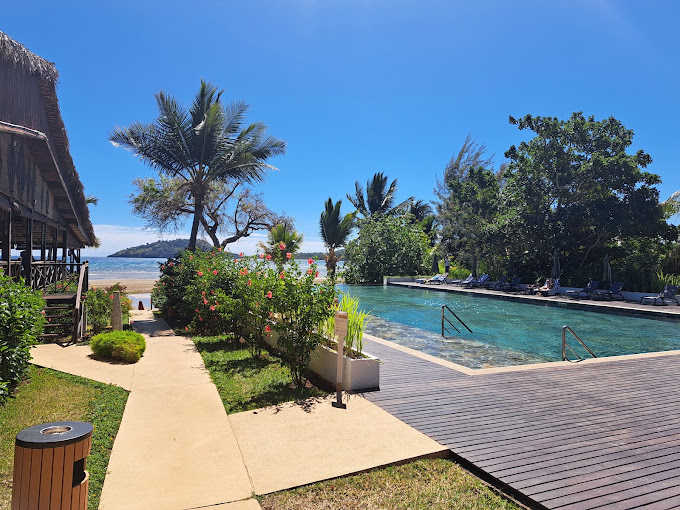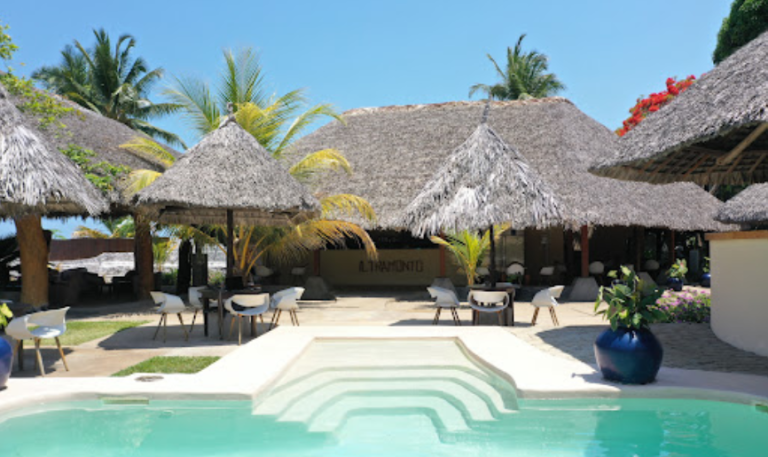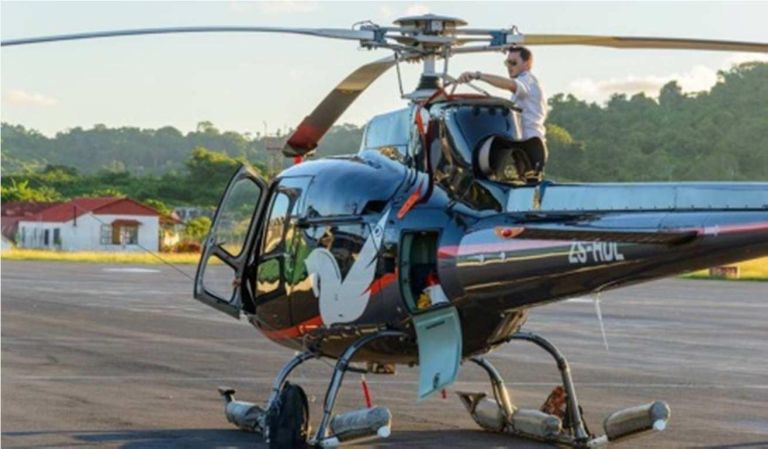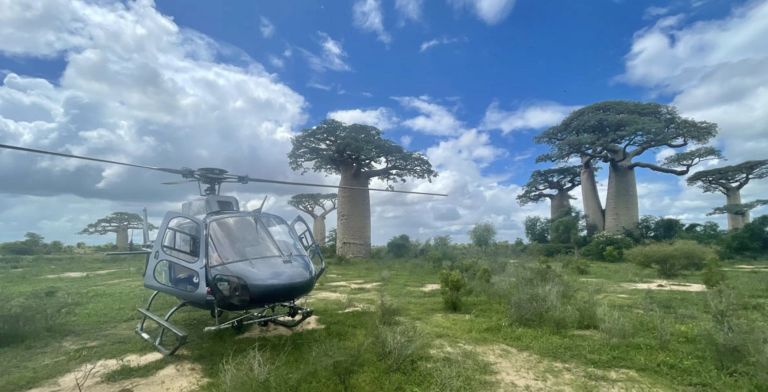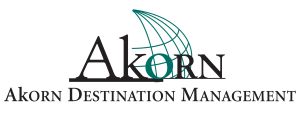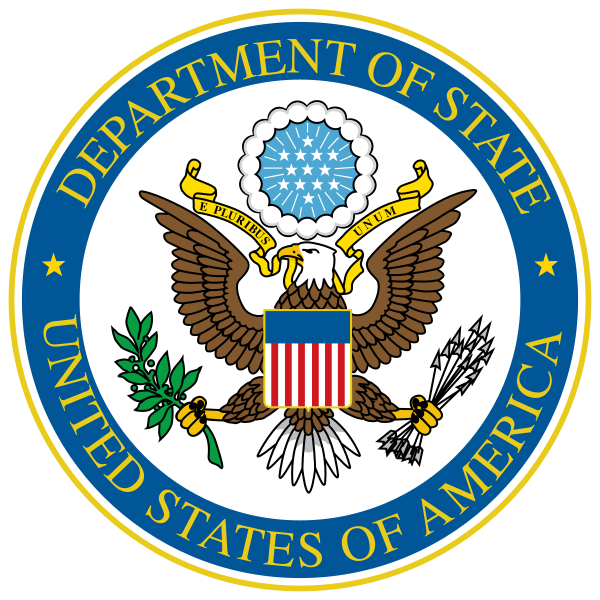- Lieu: Antananarivo, All
- Code produit: MTTsecurity
Services de sécurité armée privée à Madagascar
Nous pouvons vous fournir tous les services suivants à la carte à Madagascar lors de votre voyage, mission ou projet sur le terrain :
1. Des 4x4 récents et bien entretenus, y compris le carburant, l'assurance et tous les frais associés (utilisés pour les entreprises technologiques et pétrolières, les ambassades, les diplomates et les VVIP, même 2 Premiers ministres).
2. Autobus ou minifourgonnette à portes coulissantes, y compris le carburant, l'assurance et tous les frais associés.
3. Un guide anglophone et un assistant personnel très bien connecté à Tana, jusqu'à Diego au nord et jusqu'à Tuléar au sud, y compris auprès des généraux de l'armée malgache, du gouvernement et de G4S. D'autres spécialistes sont disponibles dans les secteurs de la technologie, du pétrole, des mines, du renseignement, du transport maritime, de l'aviation, de la lutte contre la piraterie, de la banque et des secours en cas de catastrophe.
4. Sécurité avec 1 véhicule de troupe (équipe de 4 à 8 soldats selon la région ) ou 2 véhicules d'assaut ( militaires professionnels ) - recommandé pour les déplacements à plus de 50 km hors de la ville pour des marchandises industrielles ou des produits de valeur, et pour certaines zones de Madagascar.
5. Possibilité de transport à pied ( 3 ou 4 personnes ) avec l'équipe du client à Madagascar, si vous souhaitez une escorte armée minimale. Un autre SUV serait nécessaire uniquement pour cela. Il s'agit d'agents de sécurité professionnels locaux, et non d'une entreprise privée sous-traitante. Ils savent repérer et riposter, et sont plus expérimentés dans la poursuite que dans la surveillance d'un théâtre d'opérations.6. Force de sécurité privée d'élite : comprenant de nombreuses missions de repérage et d'expérience dans les régions sauvages, les enlèvements, la mise en place d'espions pour la lutte contre la traite des êtres humains et la criminalité organisée, ainsi que la mobilité urbaine dans toutes les directions en Afrique et à Madagascar, et dans toutes les cultures et tous les contextes. Il s'agit notamment de gardes personnels sérieux pour les Premiers ministres du Japon et les anciens candidats à la vice-présidence des États-Unis et de dirigeants du Corps des Marines des États-Unis en matière de voyages ; de défense du périmètre des bases militaires américaines, d'INTERPOL ; de négociations sur les enlèvements ; d'évacuation de l'Afrique centrale dans les guerres civiles et les commandements de la guerre froide ; d'expérience dans le domaine du renseignement eurasien.
Ces groupes de travail sont recrutés pour des périodes minimales de 10 jours, incluant la mise en place et le repérage. Des périodes plus longues ne sont pas nécessaires, sauf demande expresse. Dans ce cas, le nombre de jours est calculé au prorata avec des remises dégressives. Les discussions et les réunions préalables sont encouragées.
*Vous n'avez pas à payer leur repas et nous prévoyons 30 $ par membre et par jour, conformément à la loi actuelle, afin d'éviter toute corruption. Cette somme est obtenue auprès du ministère pour les déplacements, et il est interdit de vous demander de la nourriture, des cigarettes, de la bière, etc. Autrement dit, prévoyez jusqu'à 150 $ par jour en plus des frais d'inscription.
** tous les prix sont en USD et soumis à des taxes et frais de 5,5 %.
MTT fait appel à des professionnels de la sécurité privée formés et motivés, bien supérieurs en compétences, plus rigoureux et plus subtils dans leurs mouvements que les gardes de nuit ou de sécurité standard de la plupart des entreprises malgaches. Nous ne sous-traitons pas à des personnes ou des entreprises de petite taille et inexpérimentées. Ils sont bien rémunérés pour leur expérience et leur concentration sur la sécurité réelle, et non sur le théâtre des opérations. Tous savent riposter et poursuivre en combat réel, échapper à la détection dans le paysage urbain malgache, se transformer en forces d'intervention d'urgence en cas d'embuscade, et savent rester discrets vis-à-vis de leurs clients et de leur chargement. Nos véhicules bénéficient d'un entretien rigoureux et d'excellents conducteurs. Nous pouvons également engager des éclaireurs, des agents de renseignements et des agents de liaison moyennant un supplément.
-Viking VVIP Cruises Shorex for Viking Sky 900+ person in one day 84 buses, 27 boats, 4 SUVs, and lots of lemurs!
PERSONAL PROTECTIVE SECURITY SERVICES OVERVIEW
FOR TRAVELERS AND PERMANENT LOCATIONS ABROAD
(INCLUDED IN DELUXE & ELITE TIER PACKAGES FOR SPECIAL PROJECTS)
We are the actual suppliers for most top-10 security firms, same protocols and provisions, at typically 30-80% less of the cost of their sticker, which our staff and vendors wear to appear as if “they are running” things.
1. OVERVIEW
1.1 The provision of protective security services to personnel travelling or permanently posted is required when operating or visiting a location specified as requiring enhanced security and safety measures. Services could be required for a few days, several months or on a longer term contractual basis.
1.2 Resources for service are to be agreed for each task order. They shall be established based on the threat picture, operational requirements and the risk appetite. Services provided must be sourced to meet the contractual and task order requirements. The requirements are outline below for each Service is the minimum level acceptable, in addition to complying with the wider tender personnel and legal requirements within the SoW. Requirements and standards of delivery expected can be enhanced within the task order.
1.3 Overview of Personnel Protective Services that may be required for travellers and permanently based personnel in locations requiring enhanced security and safety measures:
1.4 The Contractor must be able to support services in semi and non-permissive environments, examples of locations are highlighted in Annex A of the SOW. Contractor must be clear in their bid where they do or do not operate, including highlighting if services are via local sub-contractors. They will also indicate which countries they and their sub-contractors are legally authorised to deliver service, including what permits are held, e.g. carriage of firearms.
2. PERSONAL SECURITY
2.1 The meet and greet service will:
- Have developed relationships with the airport security functions and management.
- Be able to meet arriving personnel airside.
- Be able to facilitate the traveller through immigration, including the use of VIP lounges and protocols.
- Be able to collect and arrange delivery of luggage to the traveller’s accommodation, including customs clearance as required.
- Be able to hand over personnel to any other supporting element.
- Be able to facilitate accommodation at the airport if other supporting elements are delayed or there is a change in the threat picture.
- Collect travellers from the departures drop zone and facilitate their passage through the airport until the departure lounge. This includes seeking priority and use of VIP lounges and protocol as required.
- Be able to arrange airport side access and drop off for VIPs and in emergency cases.
2.2 The driver and soft skin vehicle will be used for travellers in semi-permissive locations in a similar theme to that offered by hotel transportation. The service will:
- Drivers will hold an appropriate driving licence for the vehicle and have extensive driving experience in moving business executives.
- It is desirable for the drivers to hold advance driving qualifications and a medical qualification.
- Drivers will have extensive ground knowledge and understanding of road rules and regulations.
- Drivers will not have a criminal record or repeat driving violations.
- Drivers will be fit to drive having not consumed alcohol or drugs and be suitably rested to complete the task.
- Drivers will drive safely at all times and abide by speed limits.
- Drivers will understand protocol requirements and hold the confidentiality of any overheard conversation.
- Vehicles are to be serviceable, clean and of a standard befitting the requirement e.g. saloon or 4×4 at an executive level. On occasion the use of low-profile vehicles may be requested.
- The vehicle shall have a medical kit (including pressure bandages and tourniquet) and full running kit and spare tire.
- Provide a security update on any security situation changes to the client.
- Be connected to local security alerting network.
2.3 The local logistical and administrational support will be able to support:
- Visa applications.
- Accommodation or venue bookings.
- Property searches.
- Attend low level meetings to arrange logistical requirements.
- Shopping for food and water, especially during changing security situations.
- Support custom clearance for Import/export of goods e.g. weapons systems or vehicles.
- The support will:
- Have developed relationships with the country’s Ministry of Foreign Affairs and Ministry of Interior.
- Be able to speak the local languages and English to a proficient standard.
- Understand protocol skills.
- Be proficient in communicating in English via email
- Have a high degree of confidentiality.
- Have communication systems via GSM, Satellite and the internet.
- Translation skills desirable
3. MOBILE PROTECTIVE SECURITY SERVICES
3.1 Mobile protective security services will provide the provision of armed/unarmed Close Protection (CP) Services for temporary or permanent requirements within semi or non-permissive environments. The approach and make-up of the required Service support will be described in the Purchase Task Order (PTO) and supporting its documentation. The Service must be able to support all of the following:
- Driver/escort and B6 armoured vehicles.
- Unarmed Host Country Nationals (HCN) Close Protection Team (CPT) with soft skin or B6 armoured vehicles.
- Armed HCN CPT with NATO countries and/or non-NATO European countries (NNMSC) Team Leader (TL), with B6 armoured vehicles.
- Unarmed or Armed Third Country National (TNC) CPT with NNMSC TL, with B6 armoured vehicles.
- NNMSC (only) CPT, with B6 armoured vehicles.
3.2 Drivers will comply with paragraph 2.2 requirements, in addition they shall:
- Have undertaken an armoured vehicle driving course.
- Have completed a defensive driving package.
3.3 Armoured vehicles shall:
- Be under 5 years old, fully registered within the country of use.
- Be serviceable and maintained to manufacturer’s recommendation.
- Have a minimum armoured level of B6, as per ERV 2010 – Blast protection certification.
- Comply with a current NATO member state’s manufacturers standard or equivalent, such as:
- Vehicle Security Advisory Group (VASG) – A British Standard for armoured car construction and testing.
- National Institute for Justice (NIJ) – The American National Institute of Justice certification for armoured vehicles.
- BR – DIN EN 1063.
- FB – DIN EN 1522/23.
- Have a satellite enabled tracking and communication system.
- Carry securely:
- Emergency B6 entry tools.
- Advanced medical trauma bag (AED desirable).
- Spare wheel and change equipment.
- Emergency rations and water.
3.4 Close Protection Team Service shall:
- Be compliant with international and local laws and legislation governing the use of weapon systems and the protection of civilians. Proof shall be presented in the bid and within task orders service delivery.
- Have clearly defined rules of engagement (RoE) that meet host nation (within the country that services are being delivered) and international law requirements.
- Be able to undertake threat and risk assessments prior and during Service delivery.
- Provide threat briefings prior to all tasks, both mobile and static
- Be able to conduct route and venue reconnaissance.
- Be surveillance aware.
- Be able to undertake operational planning and produce comprehensive plans.
- Apply foot close protection drills.
- Apply mobile close protection drills.
- Have at least one team member with a trauma medical certification.
- Be a cohesive and well drilled team.
- Undertake frequent and diverse CP related training (e.g. close protection drills, range practices, client recovery etc…), training records of achievement are to be held for 3 years.
- Be able to undertake searching of a people, vehicles and buildings.
- Be able to react to and manage critical incidents.
- Have a CPT TL with a minimum of ten years’ experience within CP.
- Have developed Action On’s to deal with foreseen events.
- Be able to provide a 24/7 coverage.
- Have an operations room monitoring and ongoing movement and events, capable of managing alerts and incidents.
3.5 Close Protection Officers (CPO) shall be professionally trained, they will:
- Have formal close protection training and preferred to hold a company or national close protection licence.
- Hold a First Person on Scene (FPOS) or equivalent standard medical certification.
- Have excellent inter-personal and client protocol skills.
- Have excellent ground knowledge of the operational area.
- Be able to confidently brief VIPs and have a high level of protocol skills.
- Be proficient in the use of firearms, including Rules of Engagement and carriage requirements.
- Have an understanding of conflict management, especially conflict avoidance; defusing of conflict; conflict resolution.
- Have received training on all equipment that they are using.
- Have a firm understanding of CP tactics for the location specific security environments.
- Be able to drive the vehicle in use.
- All CPO personal equipment (e.g. comms, weapons, etc…) shall be covered within the daily rate of a CPO.
3.6 In-Country Security manager. The in-country security manager/coordinator will be able to:
- Have a ground network of local security incident alerting.
- Be able to conduct effective liaison with local stakeholders, especially law enforcement, intelligence service and medical service providers.
- Be able to manage the overall security delivery within the area of operations.
- Be able to manage critical security incident and crisis situations.
- Be the key interface with POC, having clear procedures of when to contact the POC.















